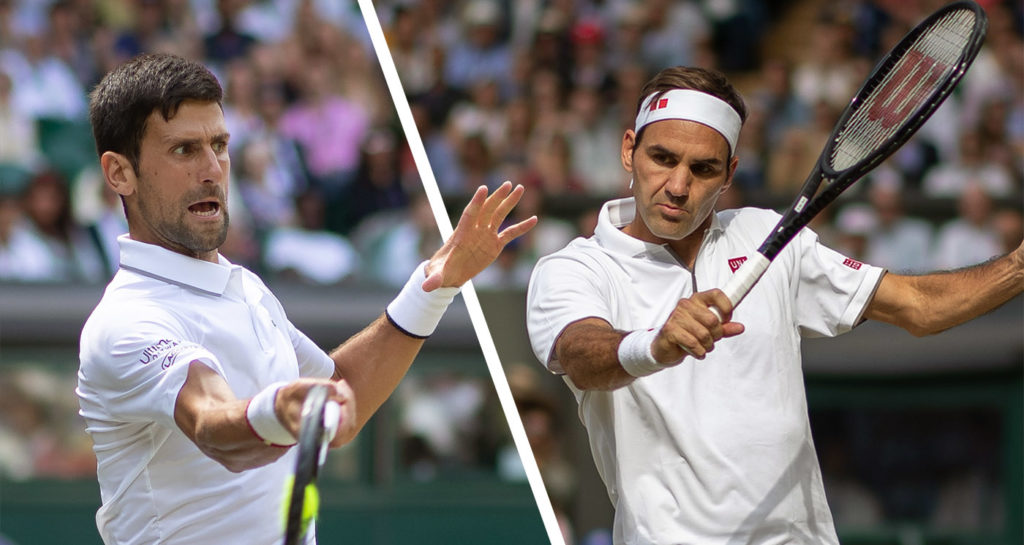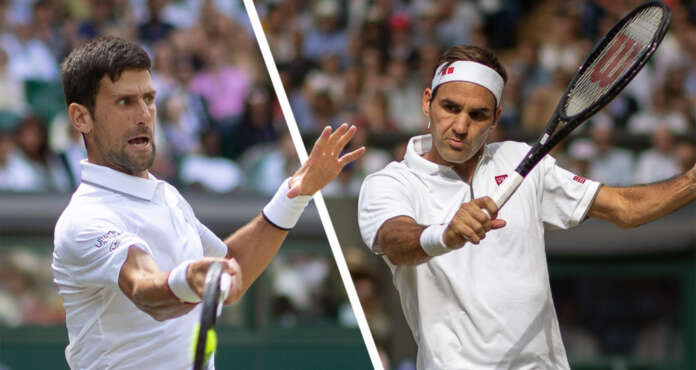We have always been used in sport to the fact that those who play worse can still win, perhaps with the help of a little luck. We are because we know that the only thing that ultimately counts to win is the cold number.
Whoever scores more goals, be it with his feet, hands or a club, whoever gets a better score, whoever scores a shorter time, in the end wins.
Even the most artistic and least comparable sports like artistic gymnastics, diving or figure skating they are forced to rely on the tyranny of numbers in order to draw up a ranking, with the discreet inconvenience of delegating the judgment of a performance to a human eye which, no matter how experienced, will never be an absolute criterion.
And the number doesn't care about the like but only of the as, he is there to summarize your performance and your effort and compare it directly with the numbers of the other or of the others, to tell you if you have won or if you have lost or your position in the standings.
Therefore, if it does not matter that that number comes from a great technical cleaning or from a big hand of the blindfolded goddess, it is natural that we can also win without necessarily proving to be superior.
However, and we are much less used to this, there are sports in which even the impeccable mathematical law fails. In these sports (such as volleyball, tennis and table tennis), a decidedly diabolical mind has decided not to make a single count of the points of the two contenders but to divide the match into sets (in tennis it has gone further by dividing even the sets in game ).
And so yes, whoever wins the most points (or game) wins the set and whoever wins the most sets wins the game, but this does not prevent you from winning by doing overall. fewer points than the opponent.
Usually the drama, for the loser, is consumed with a few sets won easily and a few sets too lost on the wire, the opponent cheering conspicuously and the knowledge that the game could easily have taken a more favorable direction.
But it is fair to give the chance to win a game by doing fewer points than the opponent? How can it be established that a player (or a team) has been superior to the other and therefore deserving to win if even the crude mathematics, on the whole, gives him wrong?
While it seems simple to accept a victory in which, even without excessive merit, you still score more points than the opponent, it remains more difficult to digest a victory in which, in the end, it is the distribution of points during the game that counts rather than the total of the points. themselves.
The epitome of winning with fewer points overall is the Wimbledon final 2019. Federer wins the most points (218 to 204, 51,7% of the total) and the most games (36 to 32) of Djokovic and in general he is ahead in practically all the statistical items but it is the Serbian who takes the trophy home.

It does so mainly thanks to the ability to win the three tiebreaks played in odd sets and to cancel two consecutive match points in the sixteenth game of the fifth set on Federer's serve. The latter fact it absolutely goes against the statistics, which in the end see the Swiss take home 68,5% of the points on his serve but not one of the two that would have brought him the ninth title on the London grass, testifying perhaps even more than the three tiebreaks to Djokovic's ability to raise the level in the topical moments of the match (or if you prefer Federer's decline at the same moments).
Coolest example in memory is the quarter-final of Tokyo Olympics men's volleyball between Italy and Argentina.
The Azzurri, on paper slightly favorites, win the first set well (25-21), lead for large stretches of the second but yield in the final (23-25), they also lose the third set starting badly (22-25) but dominate the fourth set (25-14) bringing the game to a tiebreak. Here Italy starts better and leads up to two thirds of the set but then Argentina slips a decisive set of 7 points to 2 that closes the set (12-15) and then the game. The total says that Italy has won 107 points against the 100 of the albiceleste (sinisterly 51,7% of the total in this case too) but the doors of the semifinal, and of the historical bronze that will follow, they open for Argentina.
Also in this case, therefore, the game is decided by a couple of moments and a handful of points compared to the total of the game, however always balanced. In particular in the final of the fifth set, Argentina slightly raises the level with a particularly incisive round of serve and a couple of valuable defenses, Italy remains a bit to watch and that is enough to tip the scales on the side of the South Americans .
It is therefore evident that, even if the eats, in these sports more than all the others counts when.
Being superior in the crucial steps of the match is certainly a skill, which falls within the mental sphere of sport, as well as knowing how to perform a technical gesture to perfection or be physically sparkling. Being able to bring out the best of one's repertoire when it really matters is therefore rightly rewarded by the subdivision of the score well beyond the mere sum of the points. On the contrary, those who see a decline in their performance in those same decisive moments are condemned to see themselves beaten by simply more cynical opponents.
On the other hand, does not a quality play made at the right time also acquire a bit of additional beauty compared to the same play at the beginning of the game?
Wouldn't the anticipated winning backhand response you play at 40-0 because you have nothing to lose, although intrinsically wonderful regardless of the context, would it not be even more appreciated if it gave you the decisive break? Even beauty therefore appreciates the moment.
And so it is ultimately right that you appreciate it even the score. Basically we play, watch and live the sport for those few moments there, not to make a brutal count at the end of the game.
Article Is it right to win by getting fewer points? From Sports born.



















































